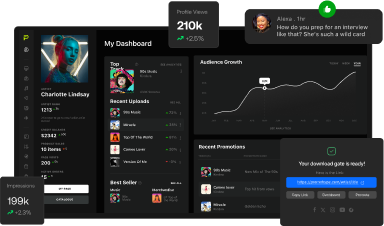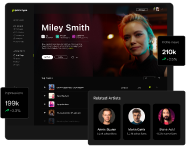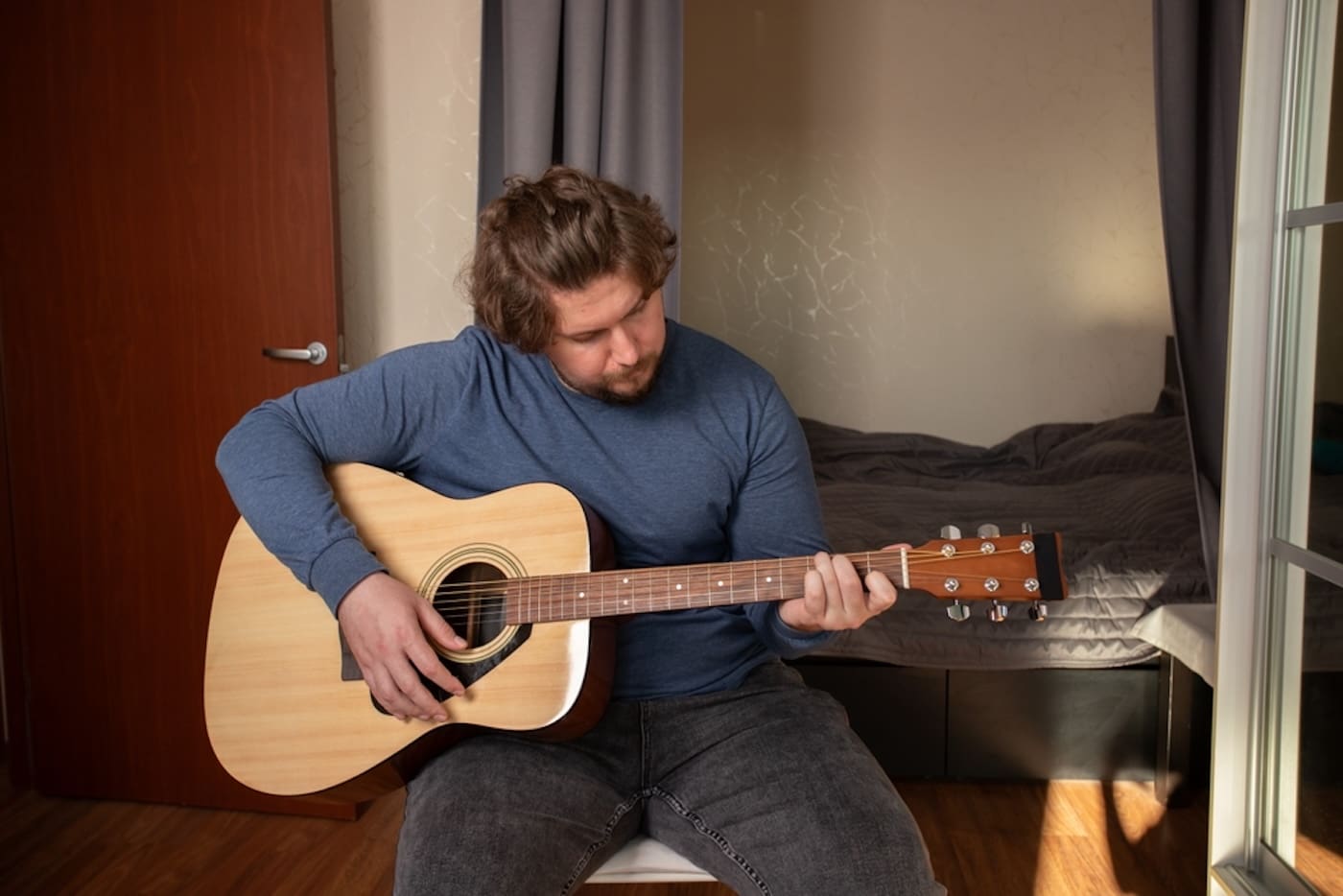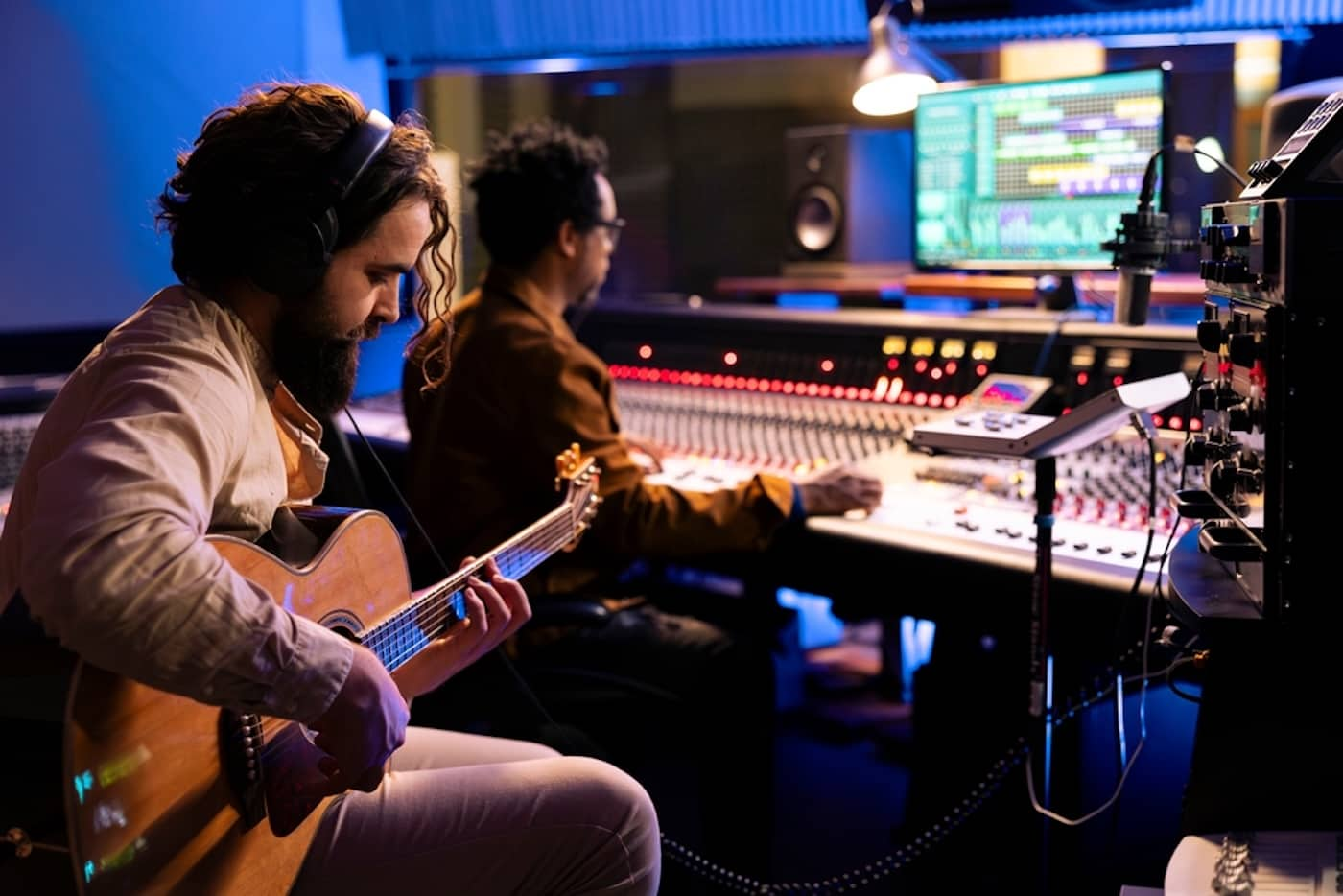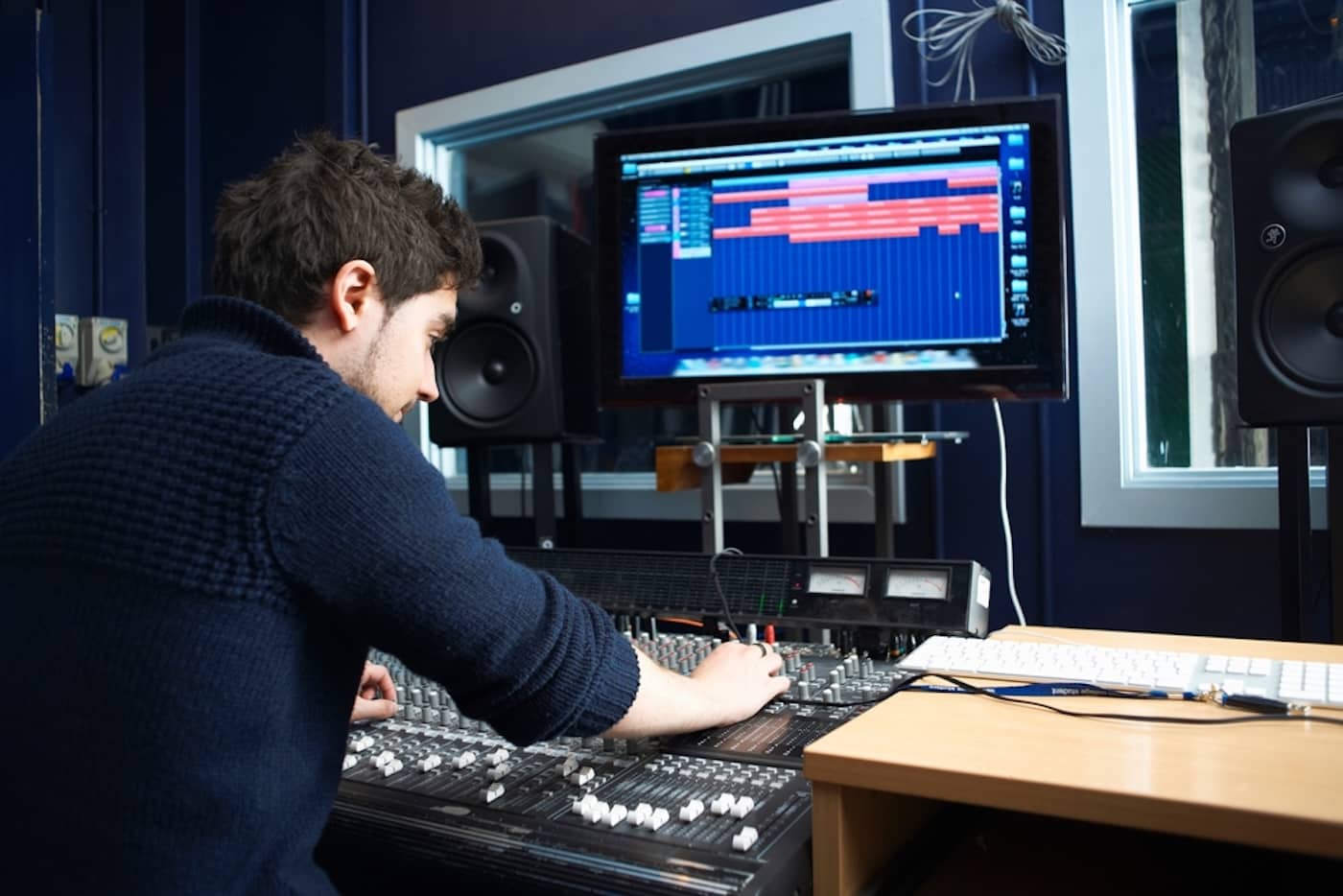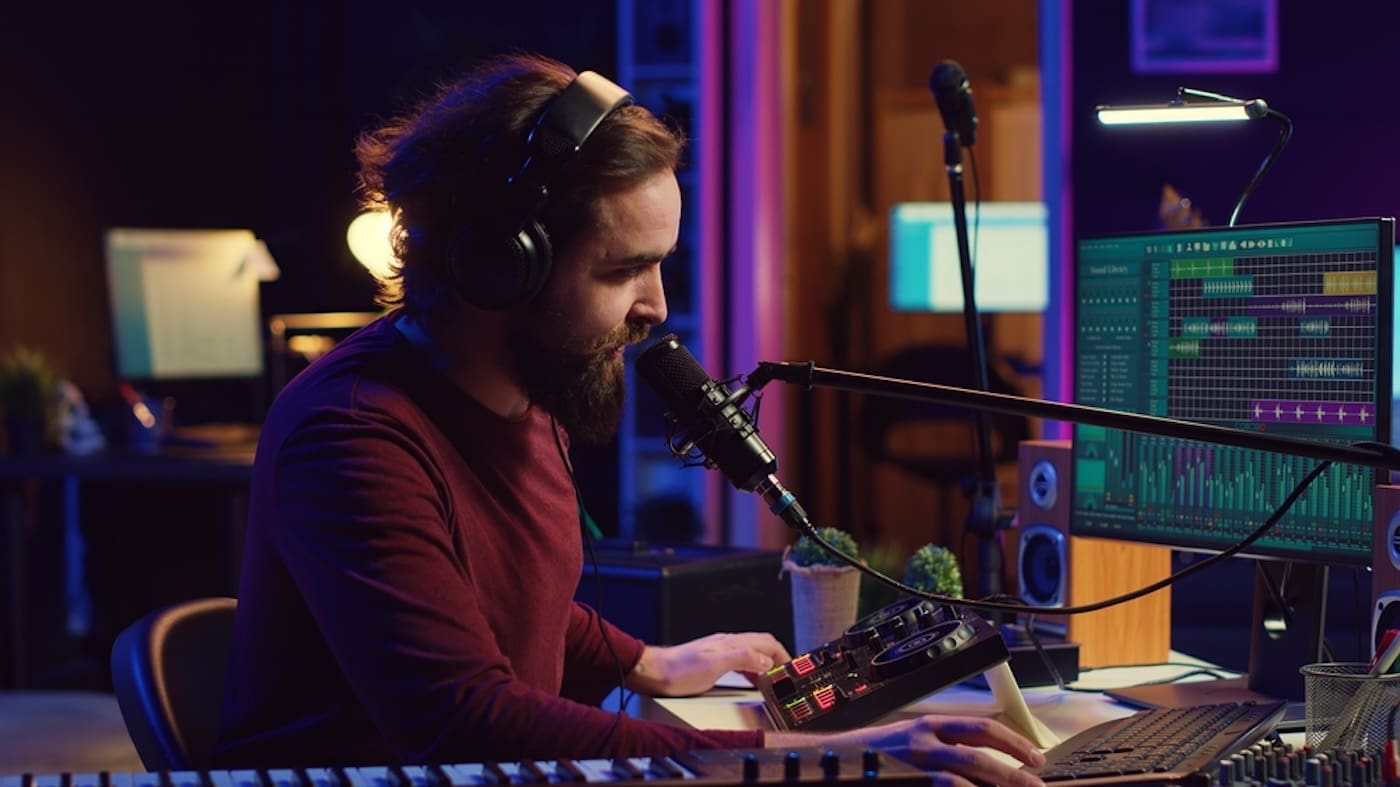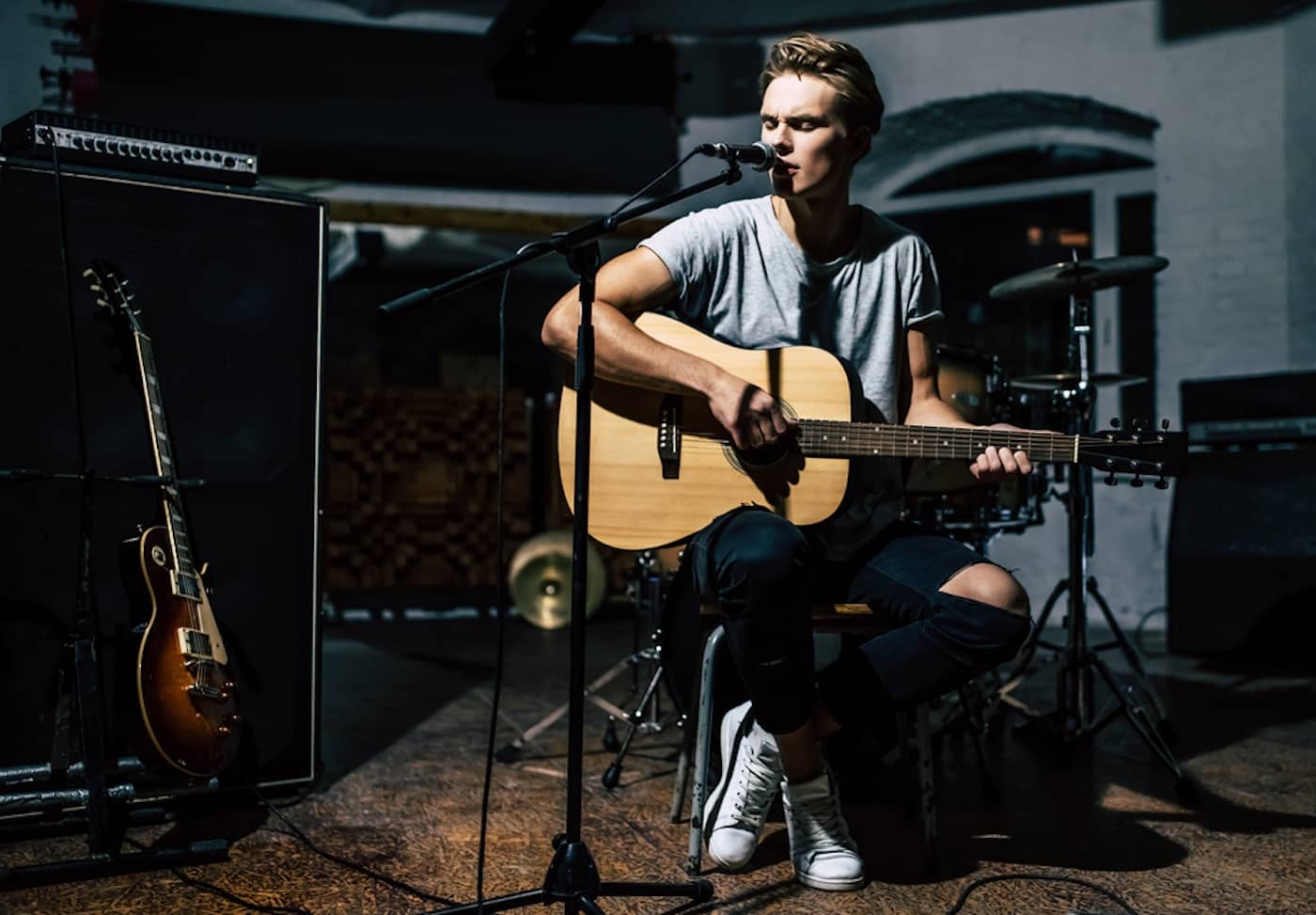
If you’re a songwriter or music producer, understanding music copyright laws is essential for protecting your creative works.
Copyright determines who owns a song’s composition and recording, as well as how those rights can generate various revenue streams.
This guide breaks down the fundamentals of music copyright law and how artists can register their songs for legal protection.
Get Early Access
To Promo Hype
What Is Music Copyright?
Music copyright refers to the legal protection afforded to a song’s underlying composition and its sound recording.
This protection allows artists to write a song without fear of plagiarism and to collect various music royalties.
Copyright law is fundamental to how the music industry works, impacting licensing and distribution for rights holders.
Once copyright protection has been secured, music can be used for various types of music licensing, from public performances to use in movies and TV shows.
Elements Protected By Copyright
Understanding how music copyright laws work begins with knowing which elements of a song can be copyrighted and which cannot.
Copyright protection applies to the original song composition and the sound recording, with different parties typically owning each type.
Here’s an overview of the musical elements protected under copyright when creating tracks for singles, EPs, and albums:
- Melody: The specific sequence of pitches that form the melody of the song’s structure is protected by copyright once the music has been finished.
- Lyrics: Likewise, a song’s lyrics are a unique creation that copyright protection exists to protect from misuse.
- Sound recordings: The fixed recording of a song’s performance, including the production, arrangement, and engineering decisions made in the studio.
It’s also vital to know which elements of a song aren’t protected by copyright law when working on musical compositions.
These elements that aren’t protected by copyright include:
- General concepts and ideas: A song’s emotional themes and general narrative elements, such as love, are not protected by copyright law.
- Common chord progressions: Commonly used types of chords used in compositions are also not subject to copyright protection.
- Rhythms and grooves: Similar to chord progressions, a song’s core rhythm and “groove” aren’t eligible for copyright coverage, since they form a raw building block for compositions.
Understanding which elements are protected by copyright will give you peace of mind when producing and distributing your music.
Further reading: Music publishing 101.
Why Copyright Registration Matters
While music is automatically protected by copyright upon its creation, registering at the U.S. Copyright Office is still recommended for artists.
These are some of the primary reasons why artists, record labels, and music publishers seek official registration of their works:
- Establishing ownership in the event of a dispute: Registering your music creates a public record of the official, date-stamped proof of ownership.
- Taking legal action for copyright infringement: In the event of theft or misuse of your work, this protection can be used in a court of law or in the event you wish to file a lawsuit.
- Facilitating international enforcement: If you require U.S. Customs and Border Protection to seize infringing goods, you will need to register to ensure enforcement.
While copyright law has evolved throughout history, it remains a vital tool for enforcing rights and ensuring fair compensation.
The Two Types Of Music Copyright
Royalty payments play a core role in making money with music, and copyright affects how these payments are collected.
Here’s how the composition copyright and master copyright for sound recordings apply when making music:
Composition Copyright
The composition copyright applies to the person or persons responsible for the underlying arrangement of the music.
This encompasses the song’s lyrics, melodies, and harmonies, which together form the overall song structure.
Ownership of composition copyright typically belongs to the songwriters and composers, although they may assign a portion to a music publisher.
Master Copyright For Sound Recordings
The specific recording of a song falls under master copyright, with the copyright holder usually the artist, producer, and record label.
Separate from the underlying composition, this form of copyright grants the owner exclusive rights over that specific recording.
It also encompasses elements of the song’s production, such as mixing and mastering, instrumentation, and the use of effects.
Exclusive Rights For Copyright Owners
Once a piece of music has been successfully registered, the copyright holder can use musical copyrights in various ways.
Let’s break down the exclusive rights that the holders can enjoy once their work has been properly registered:
- Reproduce the work in physical and digital formats: Upon a song’s completion, the rights holders can reproduce the copyrighted work as CDs, vinyl records, and digital downloads.
- Perform the copyrighted work publicly: Copyright owners are also free to perform their work in live settings, such as concerts and festivals, or on television shows.
- Prepare derivative works: Copyright protects the right to prepare derivative works based upon the copyrighted original, such as remixes and cover versions.
- Display the work publicly: A less commonly used right is the ability to display the work publicly, including the distribution of sheet music.
- Perform the work via digital audio transmission: Copyright owners may also perform the work on digital services, including streaming platforms and satellite radio stations.
Together, these rights empower rights holders to control how their music is used across multiple media and maximize their income.
Recommended read: How to start a music career.
How To Copyright Music: Step-By-Step
Dedicating time and effort to writing and producing music requires a robust approach to protecting the finished results.
Here’s how you can strengthen your work’s protection and distribute copies of your latest songs with peace of mind:
Step 1: Finalize The Musical Work
Registering for copyright begins with finalizing the music, wrapping up sessions in the recording studio, and polishing with production.
You’ll also need to fix the results into a tangible medium, such as making physical CDs or writing down the composition and lyrics.
Posting the song on YouTube or SoundCloud can serve as informal proof of creation, but won’t deliver legal protection in court.
This is crucial for handling any potential disputes surrounding the authorship and originality of your work in the future.
Step 2: Create An Account At The U.S. Copyright Office Website
Once you’ve finalized the piece of music, it’s time to create an account at the U.S. Copyright Office website.
The process is relatively straightforward: select “New User Registration” at the Electronic Copyright Office website and fill in your details.
You’ll need to create a user ID and a strong password, following any other on-screen instructions to finalize your account.
Step 3: Complete The Correct Application Form
With the account created, you’re ready to fill in the relevant application form based on the nature of your submission.
The first application covers the work of the performing arts, including the lyrics and melodies of musical compositions.
Alternatively, you can apply for protection for the master recording, which grants a master use license for your work.
In some cases, such as for solo artists who write and record their own songs, both types can be applied for through a single sound recording form.
You’ll need to enter the title of the work and indicate its publication status, along with author and claimant information.
A mailing address is also required to ensure the final copyright certificate is received upon a successful application.
Step 4: Pay The Required Fees
Once the application has been submitted, you’ll need to pay the relevant nonrefundable filing fees for your work.
These range from a single author filing to registration of multiple unpublished works, which can be filed digitally or on paper.
If the song is produced under the work-for-hire model or by multiple authors, different fee rates then apply.
Step 5: Submit Your Work
Once you’ve completed the application form, you can now submit your work and wait for the Copyright Office to verify approval.
You may be expected to clarify issues before approval is granted, such as updating contact information or confirming co-ownership.
The process may take several months, but once it’s completed, the Copyright Office will issue the author an official certificate.
Get Early Access
To Promo Hype
Cost Of Registering Copyright
Navigating the various fees for music registration is relatively straightforward, with a transparent pricing structure based on registration types.
These are the standard application fees you can expect to pay when registering your work with the U.S. Copyright Office:
- Basic electronic registration: Registering a single song created by a single author or claimant costs $45, provided the music wasn’t produced “work-for-hire”.
- Standard electronic registration: For albums or works by multiple authors, the cost is $65, and can include details regarding co-writer splits.
- Group of unpublished works: Registering up to ten unpublished songs in a single batch by the same author or claimant costs $85.
- Group of published works: For groups of published works by the same author/claimant, the fee is also $85.
- Applications via paper filing: While mail applications are time-consuming and take longer to process, the fee is $125.
Additional fees may also be applicable, such as fees for searching existing records, corrections, and recordation of documents.
Copyrighted Material & Monetization
Copyright and monetization go hand in hand, forming one of the central revenue streams across the music industry.
Here’s how copyright holders can collect music royalties from their works whenever they are reproduced online or in public venues.
Performance Royalties
Whenever a copyrighted song is used for public performances, performance royalties are available to the rights holders.
This includes radio broadcasts, television shows, and public performances in venues such as restaurants and shopping malls.
In the United States, performance royalties are collected through performing rights organizations, including ASCAP, SESAC, and BMI.
Mechanical Royalties
If a song is reproduced and distributed on physical media or through digital downloads, mechanical royalties are available.
They’re collected by institutions such as the Mechanical Licensing Collective, which manages digital mechanical royalties in the United States.
Artists can generate revenue through digital music distribution services, with streaming plays triggering both royalty types.
Sync Licensing Contracts
In addition to mechanical and performance royalties, copyrighted music can be monetized through licensing deals.
The most common method is through a synchronization license, which grants legal permission to use music in visual media.
This covers use in motion pictures, video games, television shows, and commercials, as agreed between rights owners and the licensee.
Learn more: How to trademark a band name.
Impact Of The Music Modernization Act
The Music Modernization Act (MMA) was signed into law in 2018 and was designed to reflect the impact of digital formats on the music industry.
It introduced a blanket mechanical license system for digital streaming platforms, administered by the Mechanical Licensing Collective (MLC).
The Music Modernization Act significantly streamlined the collection and distribution of mechanical royalties to the relevant rights holders.
Copyright Infringement & Enforcement
Copyright infringement occurs whenever a copyrighted work has been used without the owner’s permission.
It applies to parts of a work or the work in its entirety, from sampling a song’s element to unauthorized reproduction of lyrics and melodies.
If an artist’s work is used in such ways, they can take legal action by filing a civil court action and requesting an injunction.
Copyright infringement has become increasingly complex due to the rise of AI tools, such as AI music generators.
For instance, ChatGPT was ordered to pay undisclosed damages for violating German copyright laws during its language model training.
How To Handle Copyright Violations
If you’re a published artist whose work has been infringed upon by a third party, you can take steps to rectify the situation.
This begins with sending a formal cease-and-desist letter demanding that the infringement be ended and warning of potential legal action.
If this fails to resolve the matter, a civil lawsuit can be filed, along with an injunction ordering the infringer to cease their activities.
Such filings can lead to damages awards, with copyright violators facing fines ranging from $750 to $250,000 per infringed work.
Fair Use & Sampling From Copyrighted Music
While fair use is often applied for creating commentary and criticism, it doesn’t apply to the use of samples in music production.
If you’re making money as a music producer, you’ll need to obtain legal permission for any samples from copyrighted music.
In addition to gaining sample clearance, artists can use royalty-free samples or purchase dedicated sample packs for vocals, percussion, and instruments.
While big-name artists have successfully used samples under the fair use doctrine, it is advisable to err on the side of caution.
Read this next: Music production 101.
FAQs About Music Copyright Laws
If you still have any questions about how music copyright impacts your creative works, these FAQs will clarify additional details:
How long is music copyright in the USA?
The duration of copyright in the USA depends on certain factors, with works created after January 1st, 1978, lasting the life of the author plus 70 years.
For joint works, the identical rule applies following the death of the last surviving author, while works made for hire last 95 years from publication.
Works published before January 1st, 1930, are now considered public domain, depending on factors such as copyright renewals.
Can I copyright a remix or cover song?
If you’ve used existing copyrighted material unofficially for a remix or cover song, it isn’t eligible for copyright protection.
While remixes and covers are excellent for learning to become a music producer, legal permission is required to distribute and monetize the results.
Does U.S. copyright law apply internationally?
United States copyright laws do not apply outside the country, as different territories have their own governing bodies.
There are international treaties, such as the Berne Convention, that impact global copyright, but, in general, regional registration is required.
Summary
Navigating the complexities of the music business requires understanding how music copyright laws affect your rights.
By registering your creative works for copyright protection, you can prevent misuse and unlock new revenue opportunities.
It’s a necessary process for any aspiring musicians and songwriters looking to build a successful career in the music business.
Get Early Access
To Promo Hype
Join Promo Hype
